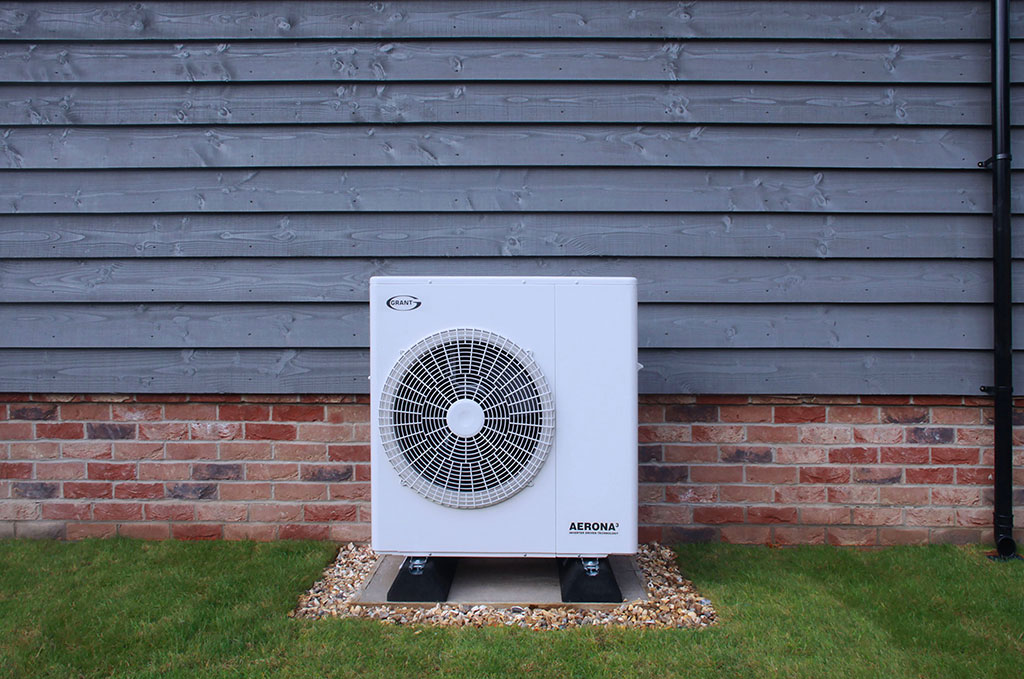
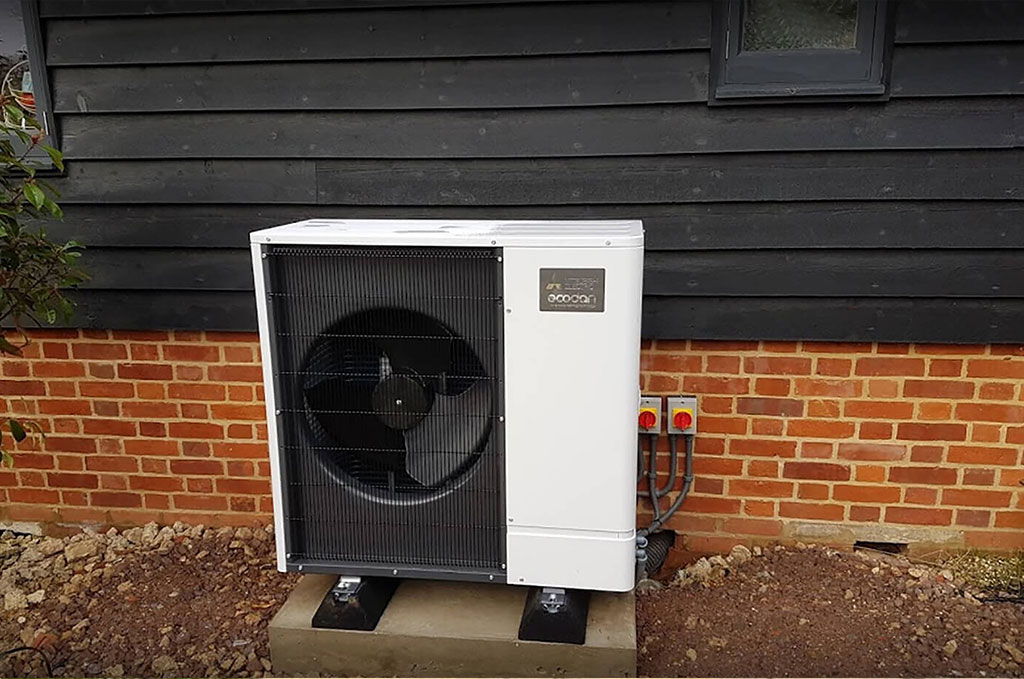
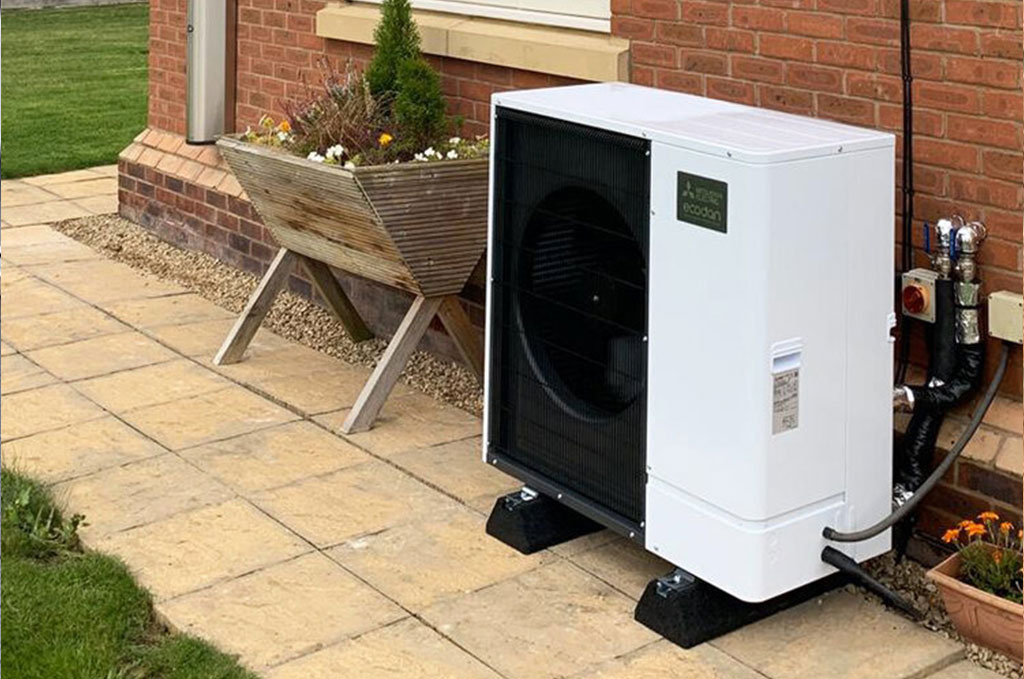
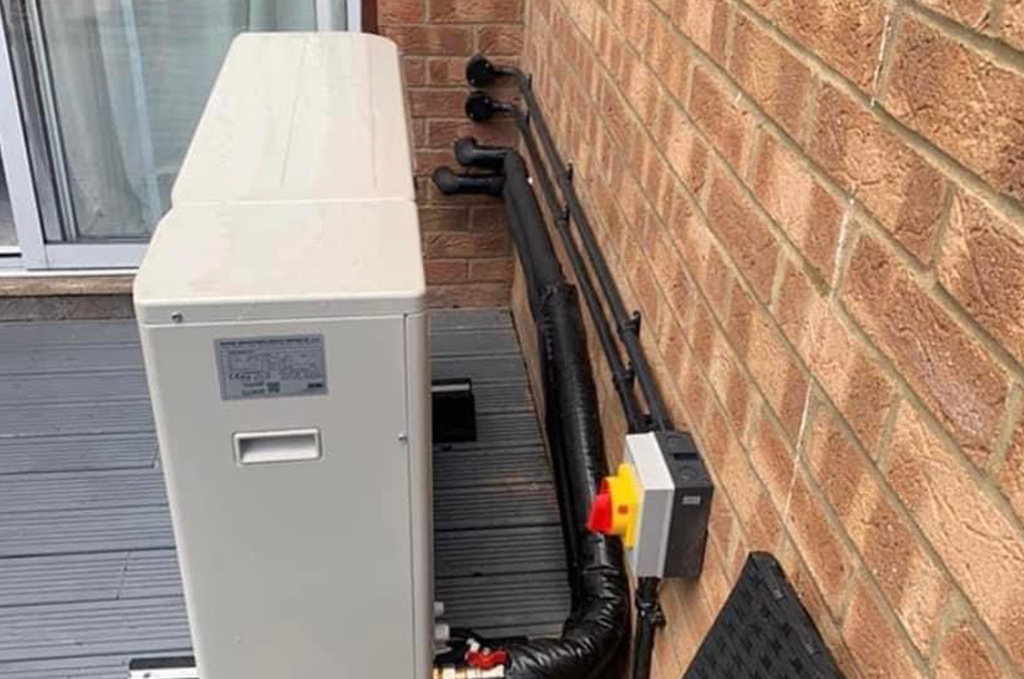
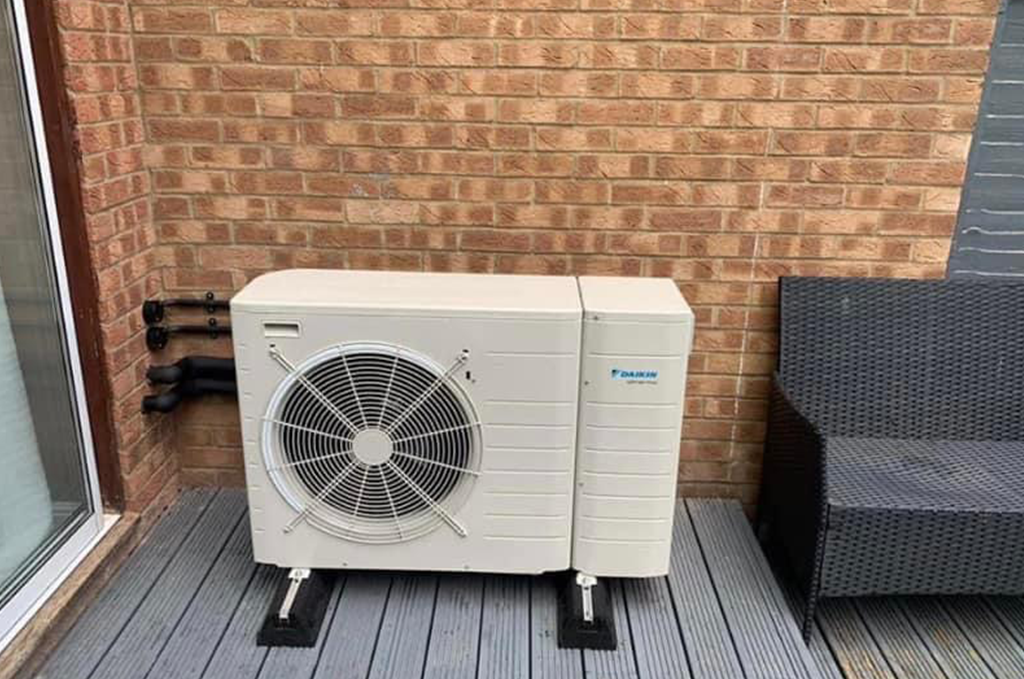
Microgeneration: Air source heat pumps are one of the most efficient ways to heat your home.
Air source heat pumps are a greener alternative to a boiler heating system or direct electric heating system. They are very low-maintenance and highly efficient.
Air source heat pumps look a bit like air-conditioning units, and their size depends on how much heat they will need to generate for your home.
An air source heat pump works by processing air and absorbing ambient heat at low temperatures into refrigerant fluid with a low boiling point. This fluid then passes through a compressor which increases the temperature and transfers the heat into the home through pipe works to radiators and into a hot water cylinder.
The cost of a heat pump will vary depending on your homes make up. We have access to funding through the Governments Boiler Upgrade Scheme and The Energy Company Obligation scheme.
A conventional electric heating system is deemed to be 100% efficient meaning that for every 1kwh of electric you put in; you get 1kwh of heat out*. An Air Source heat pump doesn’t have any heating elements inside, they are simply a fan with grills that process air and extract warmth in the air, even at minus 25 heat energy can be extracted- they are an amazing appliance.
Heating type
KWh input
KWh Output in form of heat
Cost of 3.7KWh heat
ASHP
1
3.7
34p
Gas boiler
1
4 x 0.92 efficiency = 3.68kw
3.68 x 11p = 41p
Oil
1ltr = 10KWh
(10 x 0.92) = 9.2KWh £1 = 9.2KWh of heat.
9.2p x 3.7 = 34.04p
We generally set a well-insulated home to 45-degrees leaving water flow temperature, this keeps the heat pump very efficient. Radiators need to be oversized to 3 times the size of gas/oil running at 70 degrees. If you have underfloor heating in your home, we can reduce your flow temperature to 35 degrees and this makes your heat pump even more efficient.
An air source heat pump will cost between £6000 – £15,000 depending upon your home size, existing radiator sizes and current hot water cylinder. Savings can be made if we are able to reuse the existing radiators and/or cylinder. We often need to replace hot water cylinders as their coil tends not to be large enough to cope with the lower flow temperatures. Currently we can take £5,000 off the price due to theboiler upgrade scheme.
The Boiler Upgrade Scheme:This scheme is open to all households who do not already have an air source heat pump installed. You can receive £5,000 off the price.
The Energy Company Obligation Scheme: This scheme is designed for persons on a low income or in receipt of a benefit. Please follow this link to find out more – ofgem
Stay always in touch! Subscribe to our newslatter.